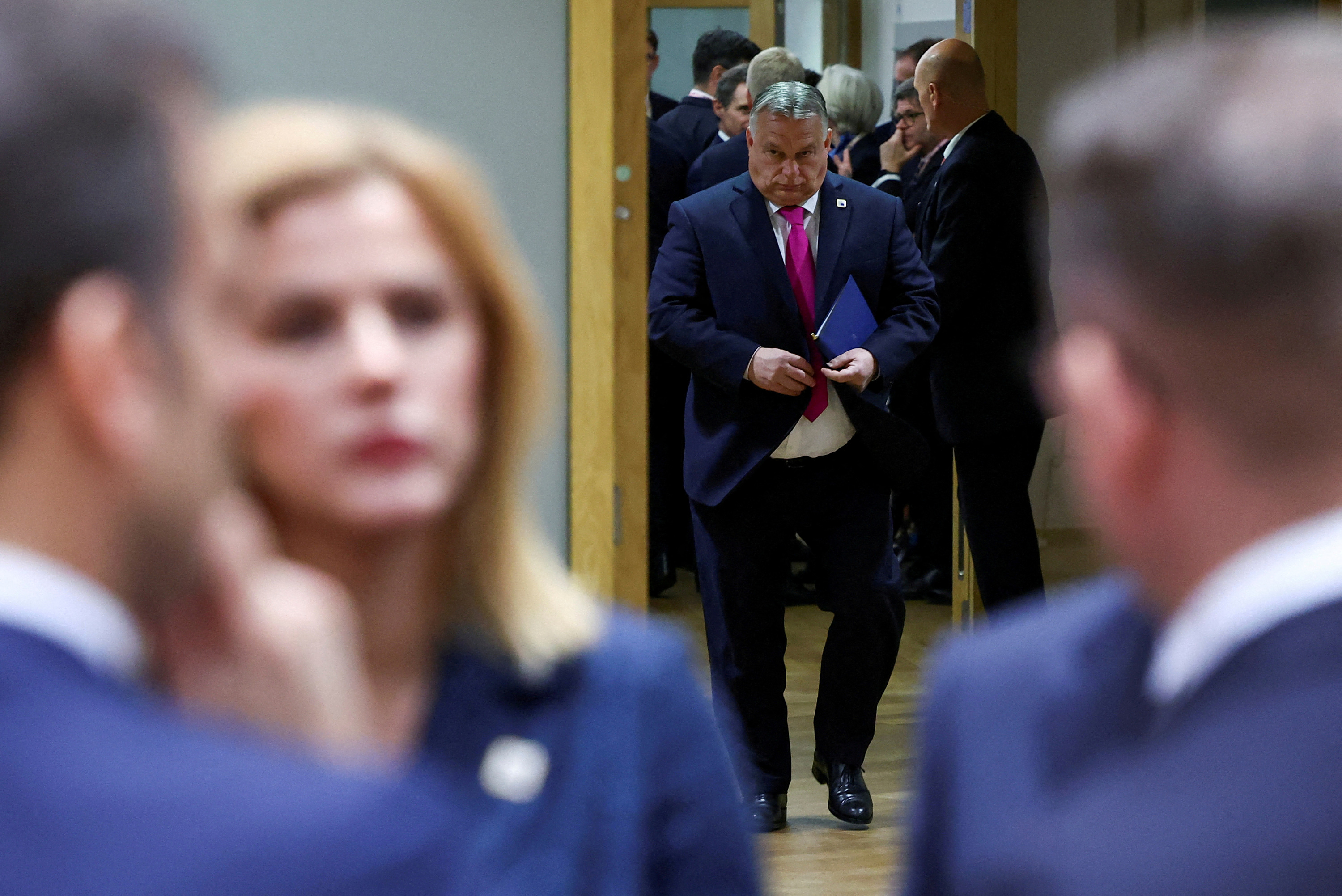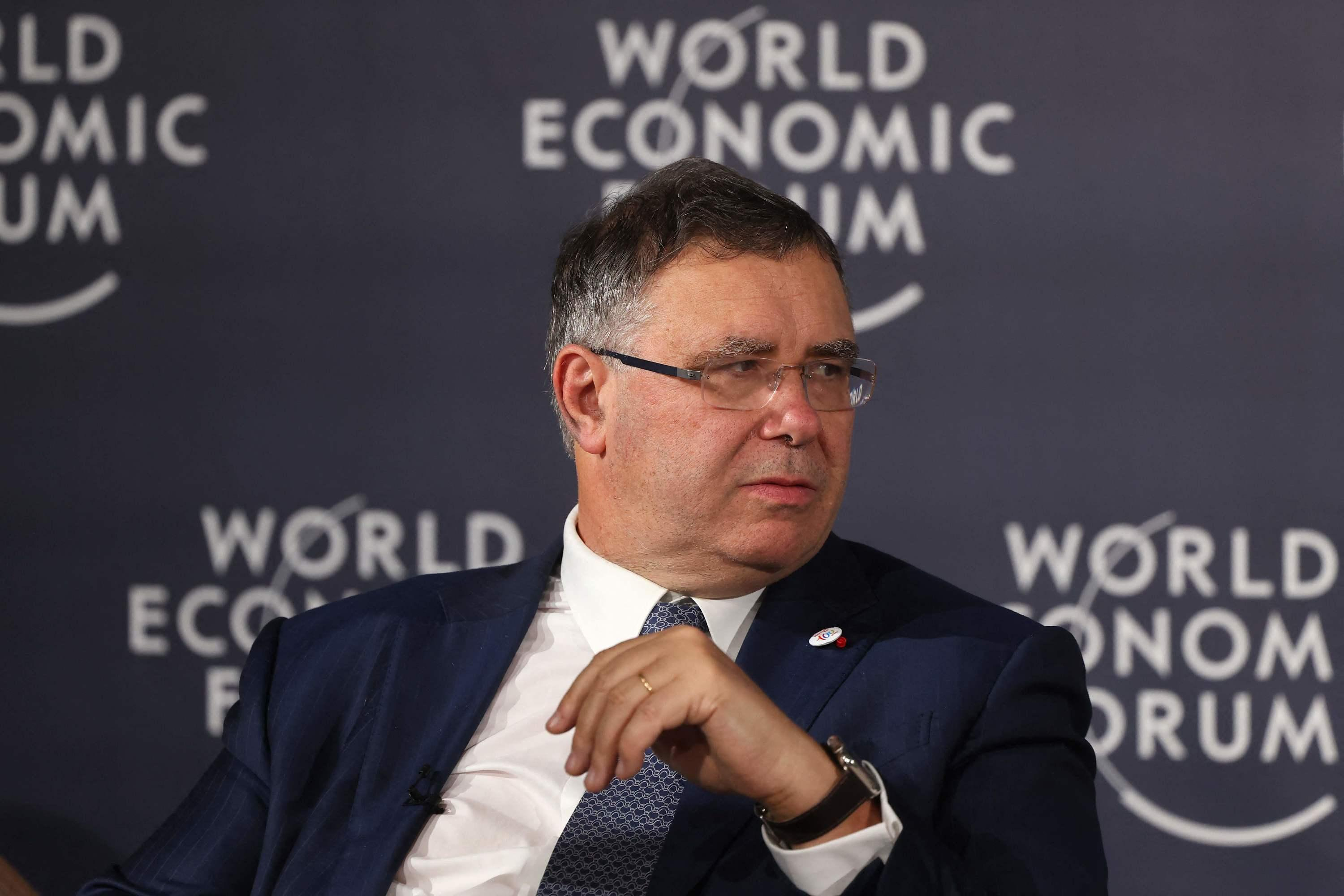Correspondent in Brussels
“I understand that Viktor wants to leave the room for a few minutes. » When Olaf Scholz uttered these words, after hours spent trying to make the Hungarian Prime Minister see reason on the kick-off of Ukraine's accession negotiations to the EU, there were only a few of them among the Twenty-Seven gathered around the European Council table to pay attention to what is at stake. The closed doors of European leaders are far from being as orderly and formal as one imagines. More often than not, it's a happy mess. To make a telephone call or to pass on information to the delegation, then relayed to the press, you enter and leave this very colorful room on the fifth floor of the Europa building where the European Council plenaries are held. We chat with other leaders in asides. We immerse ourselves in documents when discussions drag on or during endless rounds of discussions. Sometimes we even take a nosedive. This was the habit of the former Bulgarian Prime Minister, Boyko Borissov. The Sherpas of the Twenty-Seven, as well as the President of the European Council and his collaborators, are almost the only ones to follow the thread from start to finish.
When the German Chancellor speaks, many people don't really pay attention. Busy with something else like Alexander De Croo, they missed the surprise sequence. “I can’t tell you what Scholz said,” the Belgian Prime Minister confided to his advisers on Friday morning. The most attentive, on the other hand, have lost nothing of this astonishing scene. They immediately looked at Viktor Orban, saw him nod, get up from his chair and leave the room without a word with… his veto under his arm. The “Twenty-Six” then went to the vote. And as the Hungarian Prime Minister was not present in the room, there was unanimity.
Olaf Scholz, this Thursday, December 14, at past 6:15 p.m., implemented the secret plan which allowed the Europeans to send the strong and vital political signal that Kiev was waiting for, while allowing the EU to come out on top faced with Viktor Orban's veto on the start of Ukraine's accession discussions.
Both parties are each convinced of having won the standoff. The Europeans have not lost face, or less than expected. Thanks to the pirouette of his non-participation in the vote, Viktor Orban was able not to compromise on Ukraine without penalizing the European perspectives of other countries which are knocking on the door of the EU and which he supports, in particular the Bosnia and Herzegovina. “He has every interest in Bosnia joining him one day at the European Council table,” confided a European diplomat before the summit.
Still, the surprise was total. This was the aim sought to try to erase this improbable unanimity of 26. The President of the European Council, Charles Michel, still astonished by this providential breakthrough, rushed to the press room to speak to journalists who did not understand him. were no less. Ukrainian President Volodymyr Zelensky seemed to no longer believe it. “It is a victory for Ukraine, for all of Europe, a victory that motivates, inspires and makes us stronger,” greeted the leader of the country at war from Germany.
Only a few leaders were in the know. Emmanuel Macron in particular. The option of Orban not participating in the vote on kicking off accession negotiations matured over the day as the leaders - the French president and the German chancellor - understood that Orban would not give up. Charles Michel was informed late. “ He shouldn’t have been surprised by the choreography,” says an EU source. As for the Hungarian Prime Minister, the main person concerned, he knew perfectly well what was going to happen. What Emmanuel Macron indicated on Friday, recalling that Viktor Orban had indicated that he did not want to support the accession negotiations for Ukraine but also not to block them in his recent interview with Le Point. “You will not believe that Scholz spontaneously asked Orban to leave the room,” a European diplomat also argued on Friday morning. Everything was prepared during the day. And it was Orban himself who proposed to disappear at the time of the vote”. Who, right in his boots, did not fail to explain immediately after the announcement of the green light for accession negotiations why the Twenty-Six had made “a bad decision”. “ Ukraine is not prepared to start accession talks. It is a completely insane, irrational and erroneous decision to start negotiations in this context,” he criticized, relaying, less than six months before the European elections, the concerns of many EU citizens.
In defense of the Hungarian Prime Minister, the initial timetable - the one which prevailed when the country at war obtained its formal status as a candidate for membership, in June 2022 - provided for Kiev to fulfill the 7 priorities then established by the Commission before move on to accession negotiations. At this stage, Ukraine only formally fulfills 4, although crucial legislation against corruption and on minorities was passed very recently in the Ukrainian Parliament. But, while the war drags on and the great Ukrainian counter-offensive has not had the expected effects on the Russian aggressor, the Europeans considered that it was necessary to send a message of support to the candidate country now. and a new warning to Russia. “Membership is an investment in the security of our continent, in prosperity and in democracies,” Commission President Ursula von der Leyen underlined on Friday.
However, this far-reaching decision – “historic”, the Europeans repeat – is no less than symbolic and political. Because the leaders are far from having finished with Orban's veto on the accession negotiations with Ukraine. The processes being eminently complex and very well defined, two other meetings will be necessary for the effective launch of these discussions: the framework of the negotiations presented probably in March 2024 when Ukraine will have done all its “homework” then the convening of a Intergovernmental Conference (IGC). However, these steps still require the unanimity of Member States. And the parade of voting at 26 will not be able to work for the IGC, knowing that all member states without exception must endorse it and, then, be present. In addition, Hungary will hold the rotating presidency of the EU from July 2024 and, as such, will have control over the EU Council's agenda. Suffice to say that Viktor Orban still has other opportunities if he wants to torpedo the projects of the EU and Brussels. The person concerned did not fail to point this out on Friday. “Fortunately, we will have many opportunities to correct the decision made yesterday,” he warned in a message posted on X – formerly Twitter.
The Twenty-Seven also had, on Thursday evening, a first glimpse of the nuisance capacity of their Hungarian counterpart on the other aspect of the Ukrainian issue, namely the 50 billion euros over four years (17 billion in donations and 33 billion in loans) that the EU promised Kiev. This money is vital for the country at war and is part of the broader revision of the 2021-2027 European budget. Without being opposed in principle, Viktor Orban does not want this aid to go through the EU budget. This would leave Hungary free to participate or not in the European effort and to the extent it wishes. If the strong man in Budapest maintains his veto, then the Europeans would be forced to reach an agreement… 26. More broadly, with regard to the revision of the European budget, Orban considers that he has not to finance the increase in interest from the 2020 European recovery plan, while his country is still waiting for the release of the national recovery plan blocked by the Commission, due to problems with the rule of law. The leaders tried to convince her. The Twenty-Six seemed to agree on everything, but Orban didn't give up. “I can’t do that anymore. I have already given everything on membership,” he explained to Charles Michel, before the latter decided to end the discussions. An extraordinary summit is planned for late January or early February. Europeans cling to the hope that the Hungarian Prime Minister's blockage is only due to questions of domestic politics. “I expect from Viktor Orban in the coming months that while his legitimate interests are respected, he will behave like a European and not take our political progress hostage,” warned Emmanuel Macron at the end of the summit.

 B:SM will break its investment record this year with 62 million euros
B:SM will break its investment record this year with 62 million euros War in Ukraine: when kyiv attacks Russia with inflatable balloons loaded with explosives
War in Ukraine: when kyiv attacks Russia with inflatable balloons loaded with explosives United States: divided on the question of presidential immunity, the Supreme Court offers respite to Trump
United States: divided on the question of presidential immunity, the Supreme Court offers respite to Trump Maurizio Molinari: “the Scurati affair, a European injury”
Maurizio Molinari: “the Scurati affair, a European injury” Irritable bowel syndrome: the effectiveness of low-carbohydrate diets is confirmed
Irritable bowel syndrome: the effectiveness of low-carbohydrate diets is confirmed Beware of the three main sources of poisoning in children
Beware of the three main sources of poisoning in children First three cases of “native” cholera confirmed in Mayotte
First three cases of “native” cholera confirmed in Mayotte Meningitis: compulsory vaccination for babies will be extended in 2025
Meningitis: compulsory vaccination for babies will be extended in 2025 Thanks to intelligent cameras, RATP will indicate the least crowded trains on line 14
Thanks to intelligent cameras, RATP will indicate the least crowded trains on line 14 Dubai begins the transformation of Al-Maktoum to make it the future “largest airport in the world”
Dubai begins the transformation of Al-Maktoum to make it the future “largest airport in the world” When traveling abroad, money is a source of stress for seven out of ten French people
When traveling abroad, money is a source of stress for seven out of ten French people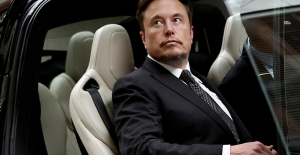 Elon Musk arrives in China to negotiate data transfer and deployment of Tesla autopilot
Elon Musk arrives in China to negotiate data transfer and deployment of Tesla autopilot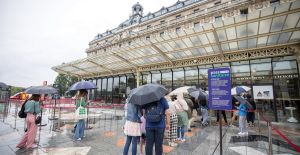 Two people arrested for attempted damage to classified property at the Musée d’Orsay
Two people arrested for attempted damage to classified property at the Musée d’Orsay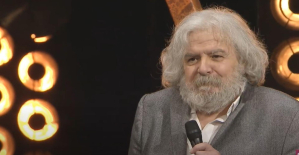 Death of composer Jean Musy, at 76, author of the music of Papy fait de la resistance, Les Champs-Élysées
Death of composer Jean Musy, at 76, author of the music of Papy fait de la resistance, Les Champs-Élysées Fanny Ardant prodigious in The Wound and the Thirst
Fanny Ardant prodigious in The Wound and the Thirst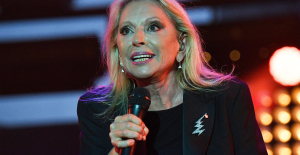 Hospitalized for pneumonia, Véronique Sanson cancels her concert in Nantes
Hospitalized for pneumonia, Véronique Sanson cancels her concert in Nantes Skoda Kodiaq 2024: a 'beast' plug-in hybrid SUV
Skoda Kodiaq 2024: a 'beast' plug-in hybrid SUV Tesla launches a new Model Y with 600 km of autonomy at a "more accessible price"
Tesla launches a new Model Y with 600 km of autonomy at a "more accessible price" The 10 best-selling cars in March 2024 in Spain: sales fall due to Easter
The 10 best-selling cars in March 2024 in Spain: sales fall due to Easter A private jet company buys more than 100 flying cars
A private jet company buys more than 100 flying cars This is how housing prices have changed in Spain in the last decade
This is how housing prices have changed in Spain in the last decade The home mortgage firm drops 10% in January and interest soars to 3.46%
The home mortgage firm drops 10% in January and interest soars to 3.46% The jewel of the Rocío de Nagüeles urbanization: a dream villa in Marbella
The jewel of the Rocío de Nagüeles urbanization: a dream villa in Marbella Rental prices grow by 7.3% in February: where does it go up and where does it go down?
Rental prices grow by 7.3% in February: where does it go up and where does it go down? Europeans: a senior official on the National Rally list
Europeans: a senior official on the National Rally list Blockade of Sciences Po: the right denounces a “drift”, the government charges the rebels
Blockade of Sciences Po: the right denounces a “drift”, the government charges the rebels Even on a mission for NATO, the Charles-de-Gaulle remains under French control, Lecornu responds to Mélenchon
Even on a mission for NATO, the Charles-de-Gaulle remains under French control, Lecornu responds to Mélenchon “Deadly Europe”, “economic decline”, immigration… What to remember from Emmanuel Macron’s speech at the Sorbonne
“Deadly Europe”, “economic decline”, immigration… What to remember from Emmanuel Macron’s speech at the Sorbonne These French cities that will boycott the World Cup in Qatar
These French cities that will boycott the World Cup in Qatar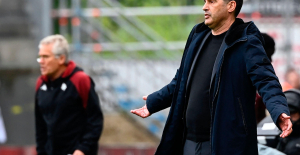 Mercato: Fonseca coach of AC Milan? The Lille coach speaks
Mercato: Fonseca coach of AC Milan? The Lille coach speaks Ligue 1: OM with a three-way defense, Lens changes almost nothing
Ligue 1: OM with a three-way defense, Lens changes almost nothing Ligue 1: PSG officially crowned champion of France for the 12th time
Ligue 1: PSG officially crowned champion of France for the 12th time Ligue 1: Lyon offers Monaco and gets closer to a European place
Ligue 1: Lyon offers Monaco and gets closer to a European place